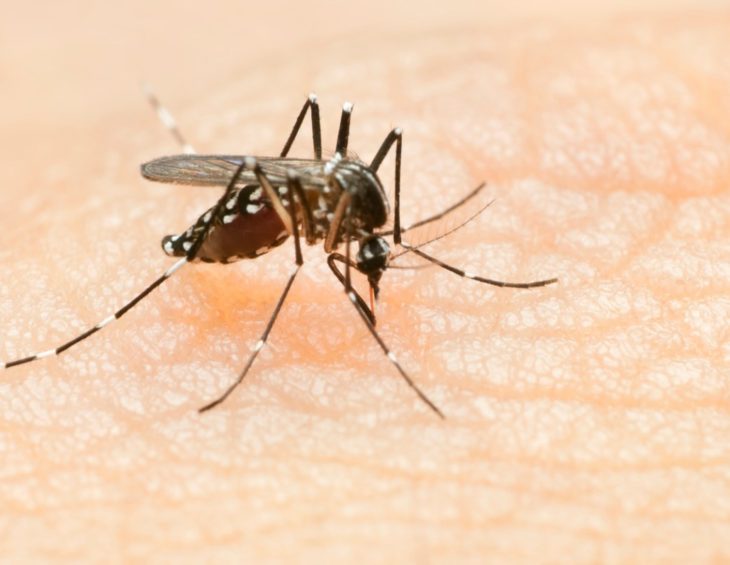
Photo Credit: https//www.asiatimes.com
Is Malaria response sidelined during Covid-19?
20 May 2020Kago Komane
While the world is preoccupied with fighting Covid-19, this year nine Batswana have tragically died from Malaria in the past few months, raising fears the situation might spiral out of control.
With the postponement of some programmes, including malaria preventative measures for fear that any contact could spread the coronavirus, the concern in the African region is that malaria could be another deadly consequence of the coronavirus pandemic, the World Economic Forum has warned.
Health experts say disruptions to insecticide-treated net campaigns and inaccessibility to antimalarial medicines due to the Covid-19 pandemic could lead to a spike in Malaria cases in the region, including Botswana. Last month, the World Health Organisation (WHO), announced that Malaria related deaths are expected to double this year compared to last year due to challenges posed by the Covid-19 pandemic.
A new analysis released by WHO and partners recently considered nine scenarios for potential disruptions in access to core malaria control tools during the pandemic in some countries and the resulting increases that may be seen in cases and deaths. Under the worst-case scenario, in which all insecticide-treated net campaigns are suspended and there is a 75% reduction in access to effective antimalarial medicines, the estimated tally of malaria deaths in sub-Saharan Africa this year would reach 769 000, twice the number of deaths reported in the region in 2018. This would represent a return to malaria mortality levels last seen in the year 2000.
Already in Botswana the situation points to a possible public heath disaster. According to Dr. Yvonne Refilwe a National Malaria Program Officer in the Ministry of Health and Wellness (MoHW), Botswana has recorded close to 800 cases of Malaria, including nine (9) deaths.
“We have 769 cases and nine deaths from various districts across the country. These statistics are for the current season spanning from the last week of October 2019 to 18th April 2020.” This is a staggering increase compared to the 208 cases and 5 deaths recorded last year for the same time period.
She said the weather conditions have been favorable for the increase of malaria mosquitos and parasites as it has been enabled by high rainfall and a slight increase in temperature.
“Also, we are bordering countries with high transmission levels of malaria, this poses a risk for importation of parasites across borders. These are also compounded by the low uptake of malaria preventive interventions by the communities,” she said.
The virus, she said, poses serious challenges, which includes the diversion of resources earmarked for Malaria to fight Covid-19.
The tendency is to skew attention towards a pandemic, said Dr. Refilwe, but added that the trick is to take advantage of the Covid-19 and use the platform to provide basic information and protection measures for Malaria.
Despite the challenges, she said activities for Malaria prevention and protection are continuing. “We have strengthened prompt case detection and improved treatment of malaria cases. Reactive case search is also done among the contacts of all confirmed cases.”
Comparable to coronavirus, Malaria also presents flu-like symptoms such as fever, muscle aches, tiredness and others, hence according to Dr Refilwe all suspected cases are tested for Malaria using the Rapid Diagnostic Test kit which renders results within 15 minutes of the test.
Acting Permanent Secretary in the ministry of health, Baile Moagi however refutes that challenges brought on by the Covid-19 contributed to the spike in Malaria cases in Botswana. She said while government generally doesn’t have enough resources for the intended interventions, the ministry continues to implement malaria prevention intervention during the Covid-19 pandemic.
According to WHO Botswana’s Malaria cases have declined since 2000, when over 71 000 cases were recorded. Botswana was marked for Malaria elimination by 2015, which was later extended to 2018 following a programme review in 2013, according to the US National Library of Medicine National Institute of Health,. However, this new dramatic increase in malaria cases may jeopardise this effort.
In light of the Covid-19 pandemic, WHO has urged countries to move swiftly and distribute malaria prevention and treatment tools at this stage of the Covid-19 outbreak in sub-Saharan Africa and safely maintain these essential malaria control services.
According to the 2019 World Malaria Report, the WHO African Region continues to carry a disproportionately high share of the global malaria burden. In 2018, the region was home to 93% of malaria cases and 94% of malaria deaths. Children aged under 5 years are the most vulnerable group affected by malaria; in 2018, they accounted for 67% of all malaria deaths worldwide.
If Covid-19 crisis interrupts supplies of insecticides, mosquito nets and medication, WHO says deaths from malaria may climb to the highest level since 2000. Africa may see cases of malaria double to the highest level in 20 years if efforts to deal with the Covid-19 outbreak disrupt other health campaigns.
WHO regional Director for Africa, Matshidiso Moeti, said in a statement recently that countries should not lose focus on other health challenges and urged them to maintain malaria interventions to ensure the continent avoids a repeat of what happened with the Ebola outbreak, which she said saw a reversal of gains made fighting other diseases.
“We must not turn back the clock. I urge all countries to not lose focus on their gains made in health as they adapt to tackle this new threat. We saw with the Ebola virus disease outbreak in West Africa that we lost more people to malaria, for instance, than we lost to the Ebola outbreak. Let us not repeat that with Covid-19,” she said.


Join the Conversation